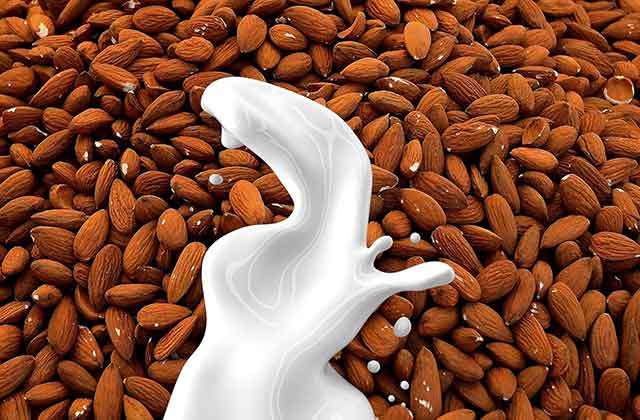There is an increasing number of consumers that question cow’s milk consumption and its impact on cows, our health, and the environment in general. These reservations bring up the desires of consumers to an alternative commodity— plant-based milk.
It is only in these past decades that the popularity of plant milk steeply increased though its consumption has been in existence for centuries across different cultures. We now have a wide range of nutritious vegan milk options for drinking, baking, and cooking, either with sugar or unsweetened.
There are various reasons why people are inclined to consume plant-based milk over dairy milk. Amongst those reasons are their nutritional value, concerns for animals particularly cows, to decrease environmental impact, keeping away from dairy milk allergens or lactose, or mere personal preference. Regardless of the underlying reasons, here are some kinds of plant-based milk that you need to try this 2021.
1. Soya milk
Soya milk remains the most sought-after plant milk and the classic milk alternative. It is classified under the legume-based category and is made by soaking and pulverizing soybeans, bringing to a boil the mixture, and filtering out of the remaining particulates.
Among the many alternatives, this is the only milk option that is naturally composed of the same quantity of protein as cow’s milk. It has three grams of protein every 100 millilitres. Many nutrition experts have even stated that soya milk can be used as an adequately healthy and nutritious alternative to cow’s milk since many manufacturers have fortified it with calcium and other vitamins including B2, B12, A, and D.
Soya milk is cholesterol-free, highly digestible and nutritive, and the least processed among the plant-based milk alternatives.
2. Almond milk
Almond milk is a plant-based milk option that is rich in many health-giving nutrients. It carries a mild and somewhat nutty taste and is perfect for eating with cereals.
Nutritionally, almond milk has much less protein and fewer calories in comparison to dairy or soya milk. Almond milk has a small amount of unsaturated fat which is healthy and much preferred.
You can make almond milk by blending some nuts with water. The blended almond and water mixture is then strained to get the milk. Mixing water to almond butter can also produce almond milk.
Since it is so diluted with water, almond milk has low calories and lower nutrients, unlike unprocessed almonds. Although, if there are enough almonds used, home-made almond milk can contain a considerable amount of calcium. It is also jampacked with vitamin E and fibre.
3. Cashew milk
Cashew milk is a relatively new variety of plant-based milk. Just like the almond, cashew milk has a somewhat nutty taste. It is appropriate for baking and cooking.
Cashew milk’s fat content is mainly unsaturated thus it is preferable for those with a high level of cholesterol or those who are watchful of their fat intake. A cup of cashew milk only contains about two grams of carbohydrates. It is a perfect partner to coffee and thickens the consistency of lattes.
Also, cashew milk is rich in calcium and is high in fibre and vitamin E. It has low calories and has a similar nutritional composition to almonds; it is just creamier in texture.
Cashew milk is made by blending the water-soaked cashews. Just strain the mixture after to remove the solid parts.
4. Coconut milk
Coconut milk is a plant-based milk alternative that is ideal for cooking and baking. Usually, it is available in cans. Coconut milk gives food a delectable aroma and is tasty in a wide range of recipes that includes vegetable soups, curries, chia seed pudding, smoothies, and ice cream. It aids in digestion and has a unique flavour.
Coconut milk is made by grating and squeezing the coconut meat.
5. Hemp milk
Hemp milk is another plant-based milk alternative. Help milk is made from the seeds of the hemp plant by soaking and grinding hulled hemp seeds in water.
It is high in fats which are mainly unsaturated. Also, it is low in carbohydrates. A glass of hemp milk alone can supply you around 50% of the recommended daily intake of alpha-linolenic acid, 2. Hence, it can provide lots of mega-3 fatty acids. It is also a rich source of calcium.
Hemp milk is perfect with cereals because of its somewhat nutty flavour. It is likewise good for cooking and baking.
6. Oat milk
Oat milk’s popularity is lately on the rise. It is a slightly sweet plant-based milk alternative, with a light consistency similar to that of low-fat milk. Oat milk contains high dietary fibre, antioxidants, and phytochemicals. Hence, it is undeniably a healthy choice.
According to studies, regular consumption of oats can positively affect gastrointestinal problems. It also has cholesterol-lowering properties and has a positive effect on cholesterol levels. It is a rich source of calcium, has beta-glucan, and is free from gluten.
Oat milk is a compatible partner to cereals and is good for cooking and baking. It is made by mixing with water the oats that have already been cleaned, toasted, and hulled. Other grains or beans can also be mixed. As with other plant-based milk methods, just strain the solids.
There are several other plant-based milk options to choose from. They include macadamia-nut milk, rice milk, spelt milk, flaxseed milk, and pea milk. Each of these varieties has a distinctive nutritional account with a wide variance in the content of carbohydrates, protein, fats, vitamins, minerals, and dietary fibre. The ever-growing selection of these milk alternatives provides consumers ample choice. With this myriad of choices, it is best if you ask your doctor for advice as to which plant-based milk alternative is best for you. Though your preference to taste or texture matter, nutritional composition and effects are highly critical which your doctor can professionally ascertain for you. You can visit a virtual walk-in clinic Calgary for this purpose.




